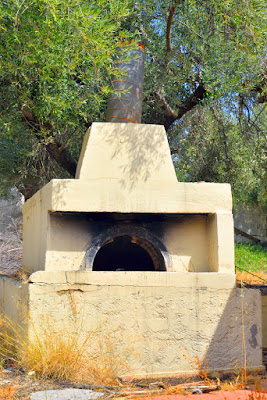7 Ways to Reduce Food Waste in Your Restaurant Kitchen
As a restaurant owner, the cost of food is one thing that's always on your mind. You can't really run a restaurant without food. Have you ever thought about the amount of money that's thrown out with the garbage each year? While a little leftover food at the end of the night might not seem like much, those costs can add up quickly. Keep reading for 7 ways to reduce food waste in your kitchen from Fast Fix LLC.
Providing quality, fresh food to customers is something every restaurant should strive for. The unfortunate thing about fresh produce is that is can spoil quickly. If a produce vendor has a huge sale, it's tempting to purchase extra. However, if you buy more than you'll be able to use before it spoils, your attempt to save money will have resulted in money wasted.
The worst thing that can happen when it comes to purchasing mass amounts of food from vendors is finding out the food on the bottom is beginning to spoil or already spoiled. Be sure to inspect your entire order before paying the vendor. Don't just look at what is on top. Don't accept any orders that are not on par with your quality standards.
Improper storage or leaving food out altogether is one of the easiest ways to create food waste. All food products should be stored in a standard food box or food packaging wrap to prevent waste from cross-contamination. You also need to ensure that your food is stored at the proper temperature.
To help prevent bacteria growth, it's a good idea to pre-cool any hot items before placing them in the refrigerator. This can be done by using a chill blaster, cooling paddle or ice bath.
Food labels are important to avoid letting food spoil. Use labels to clearly and easily identify important details like what the item is, when it arrived and when it must be used by. Once the labels are applied, be sure to use the first in, first out (FIFO) storage method. Be sure to place new arrivals behind older items so that the older products get used first. Organization is key!
While the food may not be going in the garbage, too much food could be going out the door with customers. To help save both food and money, use portion control scales to ensure that the amount of food that should be served is actually what's being served by all the employees working in the kitchen.
Aside from leaving food out all together, food can easily spoil if your refrigerators and freezers aren't in proper working condition. If you're having issues with the temperature of your refrigerators and/or freezers, it's a good idea to have them looked at by a professional. It's important to get minor things fixed before the entire unit fails and you're left with no place to store your food. If you're in need of commercial refrigerator repairs in Missouri or Western Illinois, Fast Fix LLC is here to help.
Fast Fix LLC is your honest, reliable, professionally trained commercial food-service equipment service provider in Missouri and Western Illinois. Our mission follows the "Golden Rule" of treating our customers the way we would want to be treated. Our respectful, factory-trained and certified restaurant equipment repair technicians are available 24/7 for any emergency service. WE also provide warranty work for many manufacturers. For all your Western Illinois and Missouri commercial kitchen equipment repair needs, give us a call at 573-254-3748.
Fast Fix LLC. Restaurant Services
9403 County Road 154
Auxvasse, MO 65231
Phone: 573-254-3748
St. Louis Customers: 636-FASTFIX
Website: www.FastFixLLC.com
"Like" us on Facebook
"Follow" us on Twitter
"Follow" us on LinkedIn
"Follow" us on Google
1. Don't Overbuy Fresh Produce.
Providing quality, fresh food to customers is something every restaurant should strive for. The unfortunate thing about fresh produce is that is can spoil quickly. If a produce vendor has a huge sale, it's tempting to purchase extra. However, if you buy more than you'll be able to use before it spoils, your attempt to save money will have resulted in money wasted.
2. Inspect All Food Orders Upon Arrival.
The worst thing that can happen when it comes to purchasing mass amounts of food from vendors is finding out the food on the bottom is beginning to spoil or already spoiled. Be sure to inspect your entire order before paying the vendor. Don't just look at what is on top. Don't accept any orders that are not on par with your quality standards.
3. Store Food Products Properly.
Improper storage or leaving food out altogether is one of the easiest ways to create food waste. All food products should be stored in a standard food box or food packaging wrap to prevent waste from cross-contamination. You also need to ensure that your food is stored at the proper temperature.
4. Pre-Cool Hot Items Before Refrigerating Them.
To help prevent bacteria growth, it's a good idea to pre-cool any hot items before placing them in the refrigerator. This can be done by using a chill blaster, cooling paddle or ice bath.
5. Keep Inventory Labeled and Organized.
Food labels are important to avoid letting food spoil. Use labels to clearly and easily identify important details like what the item is, when it arrived and when it must be used by. Once the labels are applied, be sure to use the first in, first out (FIFO) storage method. Be sure to place new arrivals behind older items so that the older products get used first. Organization is key!
6. Control Portion Sizes.
While the food may not be going in the garbage, too much food could be going out the door with customers. To help save both food and money, use portion control scales to ensure that the amount of food that should be served is actually what's being served by all the employees working in the kitchen.
7. Ensure Refrigerators and Freezers are Working Properly.
Aside from leaving food out all together, food can easily spoil if your refrigerators and freezers aren't in proper working condition. If you're having issues with the temperature of your refrigerators and/or freezers, it's a good idea to have them looked at by a professional. It's important to get minor things fixed before the entire unit fails and you're left with no place to store your food. If you're in need of commercial refrigerator repairs in Missouri or Western Illinois, Fast Fix LLC is here to help.
Fast Fix LLC is your honest, reliable, professionally trained commercial food-service equipment service provider in Missouri and Western Illinois. Our mission follows the "Golden Rule" of treating our customers the way we would want to be treated. Our respectful, factory-trained and certified restaurant equipment repair technicians are available 24/7 for any emergency service. WE also provide warranty work for many manufacturers. For all your Western Illinois and Missouri commercial kitchen equipment repair needs, give us a call at 573-254-3748.
Fast Fix LLC. Restaurant Equipment Service & Repair -
One Call Does It All!
Fast Fix LLC. Restaurant Services
9403 County Road 154
Auxvasse, MO 65231
Phone: 573-254-3748
St. Louis Customers: 636-FASTFIX
Website: www.FastFixLLC.com
"Like" us on Facebook
"Follow" us on Twitter
"Follow" us on LinkedIn
"Follow" us on Google







Comments
Post a Comment